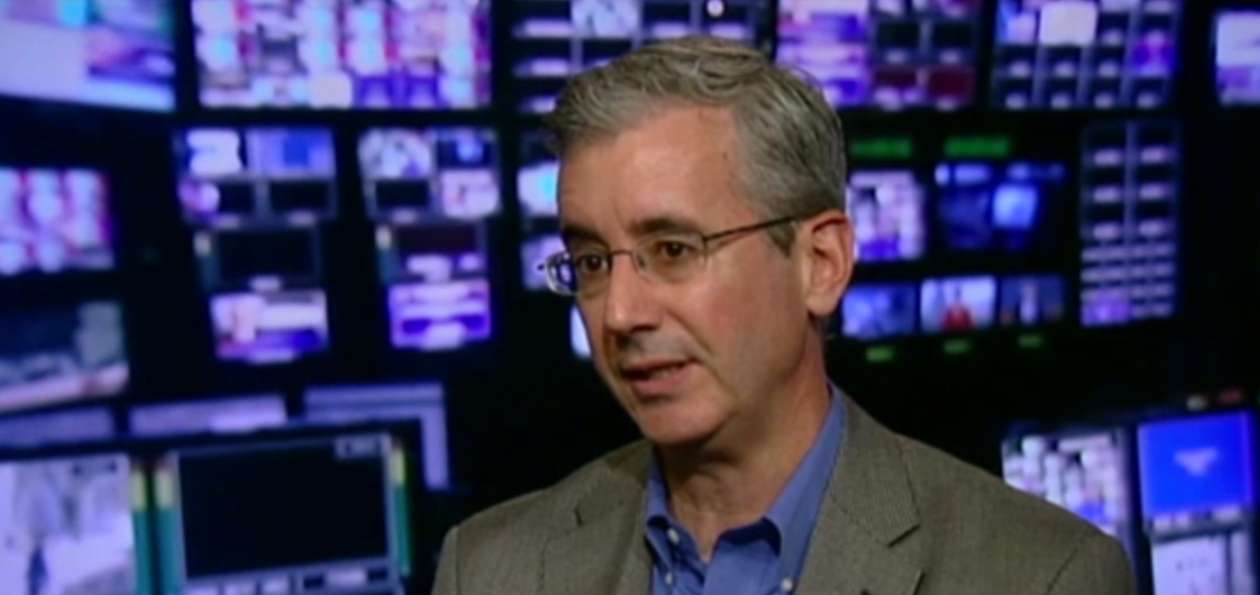Introduction
Firing a legal salvo directly at the White House, a House committee voted along party lines Thursday to subpoena President Barack Obama’s inner circle for its deliberations over the administration’s failed $535 million investment in a California solar panel maker that was backed by a political fundraiser for the president.
The subpoena, which has not yet been issued, would direct the chiefs of staff of the president and vice president to turn over internal correspondence on the Department of Energy’s loan guarantee to Solyndra Inc.
After securing its half-billion dollar taxpayer financing in 2009, the fledgling firm this year shut its doors, fired 1,100 workers and filed for bankruptcy.
Its collapse gave a black eye to the Energy Department, which has issued billions of dollars in federal support to clean technology firms, and has attracted investigations from the FBI, inspectors general for the Energy and Treasury departments and two House committees.
Energy officials raced to support Solyndra in the face of abundant red flags the company was a risky bet.
New internal emails obtained by iWatch News and ABC News show that Energy officials downplayed concerns even from Solyndra’s own auditor, who last year raised “substantial doubt about its ability to continue as a going concern.”
The House Energy and Commerce Committee’s 14-9 vote fell along party lines, with Republicans demanding the release of the deliberations while Democratic leaders contended the subpoena impedes on executive privilege, a limited legal privacy protection afforded to presidential actions typically in the realm of national security.
The vote is likely to stir a legal challenge that could trigger larger issues for Obama: Will a president known for preaching open government fight the release of records from his own top aides?
“I wish it had not come to this,” Energy and Commerce Chairman Fred Upton, R-Mich., said repeatedly. The subpoena “is a tool we use sparingly, and only as a last resort. Today, it is our last resort.”
Democrats said taking this dramatic legal step was premature given that the White House had reached out to Republicans a night earlier to negotiate.
“Apparently, what the committee really wants is a confrontation with the president, not information for the investigation,” said Henry Waxman, D-Calif., the ranking Democrat on the committee.
Issuing an overly broad subpoena “raises the strong possibility of the defense of executive privilege, an area which has much opportunity for the Congress to lose power if we handle it badly,” warned Rep. John Dingell, D-Mich. He and Colorado Congresswoman Diana DeGette, the ranking Democrat on the investigations subcommittee, both put forward motions to delay the subpoena, which were defeated along party lines. A day earlier, some Democrats noted, during a Natural Resources Committee meeting, Republicans opposed a motion to subpoena the CEOs of BP, Transocean, Halliburton, and Cameron who refused to testify over the Deepwater Horizon oil spill.
In its Solyndra inquiry, House Republicans sent two previous letters to the White House seeking communications about the Department of Energy loan. The Obama administration has turned over more than 85,000 pages of documents regarding the Energy Department loan portfolio, but withheld internal communications – citing what White House counsel Kathryn Ruemmler called “long-standing and significant institutional executive branch confidentiality interests.”
On Friday, the White House announced it would audit all outstanding obligations in the DOE loan portfolio. That review is being conducted by former Treasury official Herb Allison and expected to last three months.
Yet the debate over the presidential subpoena could attract more attention.
“The committee really wants these documents,” said Mitchel Sollenberger, a former Congressional Research Service analyst who is now a professor at the University of Michigan-Dearborn.
If executive privilege is invoked, Sollenberger predicted Republicans would move to find the president in contempt of the subpoena – as Democrats did when the Bush administration refused to cooperate during controversy over the firing of U.S. Attorneys.
“Will this define his presidency? No. Will this show you what kind of president he is? Yes,” Sollenberger predicted. “Making an executive privilege claim says a lot, particularly the claim that he would make here. This is a domestic policy issue.”
While campaigning for office in the 2008 election, Obama promised a more restrained use of executive privilege.
“Nobody is above the law,” he said, according to press reports at the time. “If there are specific assertions of executive privilege, then, you know, those can be examined. But I think this notion, this blanket notion that you can’t subpoena White House aides, where there’s evidence of genuine wrongdoing, I think is completely misguided.”
“We’re a nation of laws, and not men and women,” Obama said, “….that’s a precedent I don’t mind living with as president of the United States.”
The White House did not immediately respond to a request to comment on the committee’s vote.
The committee said it intends to press for the release of emails from top aides, including former White House Chief of Staff Rahm Emanuel, senior advisor Valerie Jarrett, former National Economic Council Director Larry Summers, and Ron Klain, former chief of staff to Vice President Joe Biden.
In a statement, the Republican-led committee said it recognizes Obama’s “personal communications would most likely be covered by an assertion of Executive Privilege.
“However,” added the statement from Upton and Oversight and Investigations Subcommittee Chairman Cliff Stearns, R-Fla., “the committee leaders fail to see why internal White House communications between senior White House advisors about a loan guarantee to a solar panel manufacturer would implicate issues of national security or the other foundations upon which the Supreme Court has recognized Executive Privilege.”
Some emails already released in the committee’s eight-month investigation have proved embarrassing for the White House.
Records released last month revealed how a top Obama fundraiser, Steven J. Spinner, prodded Energy Department officials to move quickly to close Solyndra’s loan in 2009 even as his wife’s law firm represented the company.
Spinner, then an Energy Department staffer, pushed for Solyndra even after receiving an ethics opinion forbidding him from getting involved in matters relating to his wife’s law firm clients. The law firm said Spinner’s wife played no role in Solyndra’s legal work. Spinner has not responded to interview requests.
A new batch of emails and other correspondence, obtained this week, provide further details of how Energy Department officials pressed to support Solyndra even as outside auditors and others raised questions. The emails also show how the Energy Department, in refinancing Solyndra’s loan earlier this year, put private investors — including George Kaiser, an Obama bundler in 2008 — in line before the public in bankruptcy proceedings.
Energy officials have consistently said they back risky, but potentially game changing, technologies that could aid the environment and the economy. They say it’s a risk worth taking, and that politics are not a factor in its awards.
In Solyndra’s case, warnings came early.
The brightest red flags came last year, when Solyndra auditor PricewaterhouseCoopers LLP issued a report as the company prepared to go public.
“The Company has suffered recurring losses from operations, negative cash flows since inception and has a net stockholders’ deficit that, among other factors, raise substantial doubt about its ability to continue as a going concern,” the auditor concluded March 16, 2010.
The auditor’s conclusion stirred media reports and a wave of concern inside the White House as President Obama prepared to visit Solyndra’s plant that May to herald the project as a case study of the government’s support for innovative green energy projects.
“As you know, a Going Concern letter is not good,” Obama advisor Jarrett wrote Biden aide Klain at 6:11 a.m. May 24, 2010, two days before the president’s visit.
“Thoughts?” she asked, citing the PricewaterhouseCoopers report.
Jarrett sent the note after Steve Westly, a major Obama fundraiser and California clean-technology executive, emailed her about the auditor’s report and the dark clouds over the company, warning that the president’s visit “could haunt him in the next 18 months if Solyndra hits the wall, files for bankruptcy, etc.”
Inside the Energy Department, the emails show, the concerns were cast as little more than the early hiccups of a start-up venture pitching a new product — in this case, unique solar panels for the commercial rooftop market.
Matt Rogers, then a senior advisor to Energy Secretary Steven Chu on Recovery Act issues, downplayed the report.
“The ‘going concern’ letter is standard for companies pre-IPO,” Rogers wrote that May morning, a few hours after Jarrett’s email. “The letter says in short that the company needs more capital to keep going long-term, which is why they are planning to tap the public markets. We will see these with all the pre-IPO companies that we fund and is not a general concern.”
“The good news,” Rogers added, “is that the loans that we made are allowing the company to increase revenues and reduce production costs significantly, helping them remain competitive in a tough market.”
That assessment was echoed by others in the department.
“Our project finance guys have an explanation for this – apparently this is not uncommon (some companies post big early losses while they ramp up — like Amazon),” wrote one Energy Department staffer. “Bottom line is that we believe the company is okay in the medium term, but will need some help of one kind or another down the road,” wrote another. Yet another cited Solyndra’s “remarkable” growth over the two prior years.
Klain, the Biden aide, was convinced. “Thanks!” he wrote to Rogers and others. “This looks fine to me.”
On May 26, two days after Jarrett’s early morning missive, Obama visited Solyndra’s Fremont, Calif., plant.
Yet months later, the company laid off 180 full and part-time workers and cancelled its IPO. By late 2010, it faced a cash flow crisis and further questions about its viability.
On October 25, 2010, Brian Harrison, then Solyndra’s president and CEO, wrote to an Energy Department loans office staffer concerning the reports of its troubles. Harrison said he had recently met with Secretary Chu, but “did not have an opportunity to speak with him privately.”
“The reason for this note is to make you aware that Solyndra has received some press inquiries about rumors of problems (one of them with quite accurate information) and we have received in bound calls from potential financial investors,” Harrison wrote.
“It is our belief that it is better for all parties to get in front of the story and control the messaging rather than get behind the story and on the defensive,” he wrote, saying the company was crafting public statements. “There will be no mention of the DOE,” he wrote.
Solyndra’s financial spiral continued into 2011, prompting investors including Kaiser to back it with a $75 million infusion – and the DOE, simultaneously, to refinance its loan. That refinancing strategy, spelled out in the newly released records, shows how the Energy Department allowed those $75 million investors to stand in line first, with taxpayers second, in event of bankruptcy.
Under the refinancing, the Energy Department began sitting in on Solyndra board meetings.
“Solyndra is experiencing a significant liquidity crisis and has embarked on a restructuring plan premised on cost reduction, new money investment, and conversion of debt to equity,” said a draft restructuring proposal developed by the Energy Department.
“Argonaut,” Kaiser’s company, and “DOE aim to agree on an approach to allow the Company the opportunity to reach cash flow break-even during 2012,” it continued. Since March, Kaiser has declined interview requests. Solyndra said political ties were not a factor in its DOE award, and the White House has noted that some other key company investors have historically backed Republicans.
Solyndra never turned its finances around. On August 31, the company collapsed, firing workers on the spot and spiraling toward bankruptcy, just as some auditors and analysts had feared.
As word of Solyndra’s implosion hit California television stations that morning, Jeff Navin, deputy chief of staff to Secretary Chu, sent a brief note to colleagues.
“It’s just broke,” he wrote.



Join the conversation
Show Comments